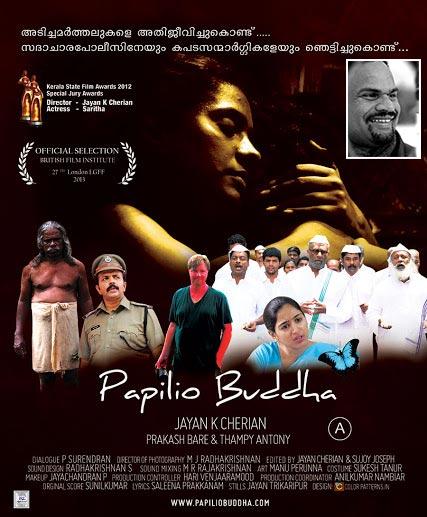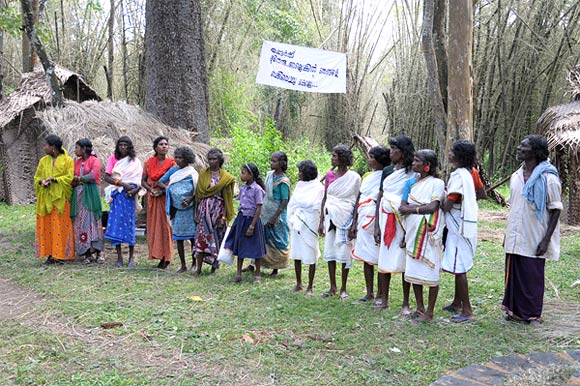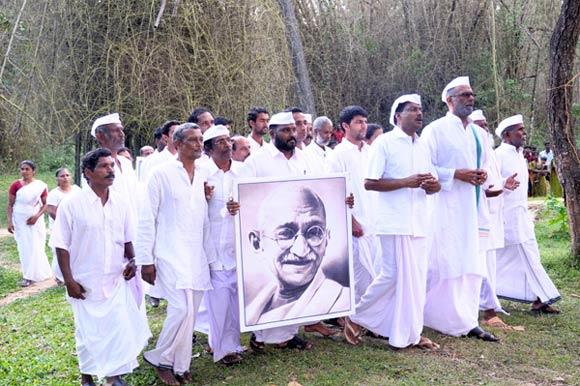 | « Back to article | Print this article |
'Papilo Buddha is about the landless dalits'
Debutant director Jayan Cherian's Papilo Buddha (a rare species of butterfly found in the Western Ghats) is going to make it to the theatres today.
The film had a tough time getting past the Censor Board, which at first refused to even issue a certificate, mostly due to the political line that the film took.
The director and the producer, Prakash Bare, were running from pillar to post convincing people of their vision and honesty. They even threatened to go to court.
Though some 25 cuts were suggested, finally the issue was settled with just a few beeps and blurs.
Thanks to all the publicity, the makers are happy that the public already knows what the film is about and will easily understand it.
Jayan Cherian is also happy that the jury of the recently announced State Awards did not ignore his creation and he and his lead actress got a special mention for their efforts.
Over to Jayan Cherian as his pet butterfly is ready to take flight:
How long was the gestation period for this film?
I started working on this subject in 2009, researching, taking notes and even staying in places like Chengara, Meppadi and Muthanga. Then I started assimilating all the information into script form.
'Dalits too have a caste hierarchy'
Was there a specific reason to depict the struggle of landless tribals in fictional form?
Yes, these people are spread across a wide area and their customs and traditions differ in every area.
You know that the Dalits too have a caste hierarchy. It would have been very difficult to capture that in the documentary form. So, it was better to give it fictional form and tell a composite story about them.
Did you not anticipate trouble with the Censor Board when making this film?
While making the film, we were only concerned about telling the story truthfully. Inhibitions like censoring and other things never crossed our minds.
'We have not aligned the film with any political group'
What were the main objections raised by the Censor Board?
Their main objection was that they thought the film was anti-Gandhi. But, what we have shown or mentioned are historically recorded facts. The rift between (M K) Gandhi and Ambedkar too is well known.
We have not aligned the film with any political group, be it the Left or the Congress, as the Dalits have realised that political groups patronise them only for votes.
Most of the leaders championing their cause are mostly upper class people. It is only now that we see that their leaders like C K Janu and Laha Gopalan have started emerging from their own groups.
There are rumours that this is a gay film.
Not at all. There is a homosexual shot, and that is all. It is aesthetically shot and has significance in the narrative.
Similarly, there is a heterosexual act too captured in the story. It is wrong to compartmentalise people as homosexual or heterosexual. Every living being goes through these phases in a lifetime.
What do you expect Papilo Buddha to achieve?
I sincerely wish that all other issues that we had to go through are kept aside and it just brings the issues of the landless Dalits to the centre-stage.


